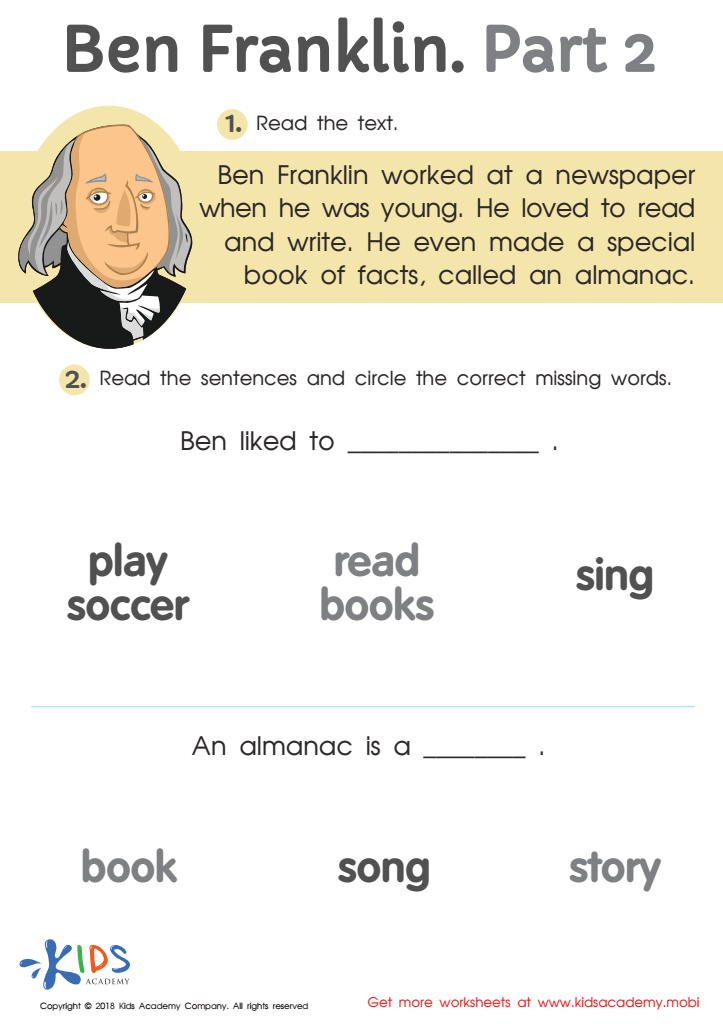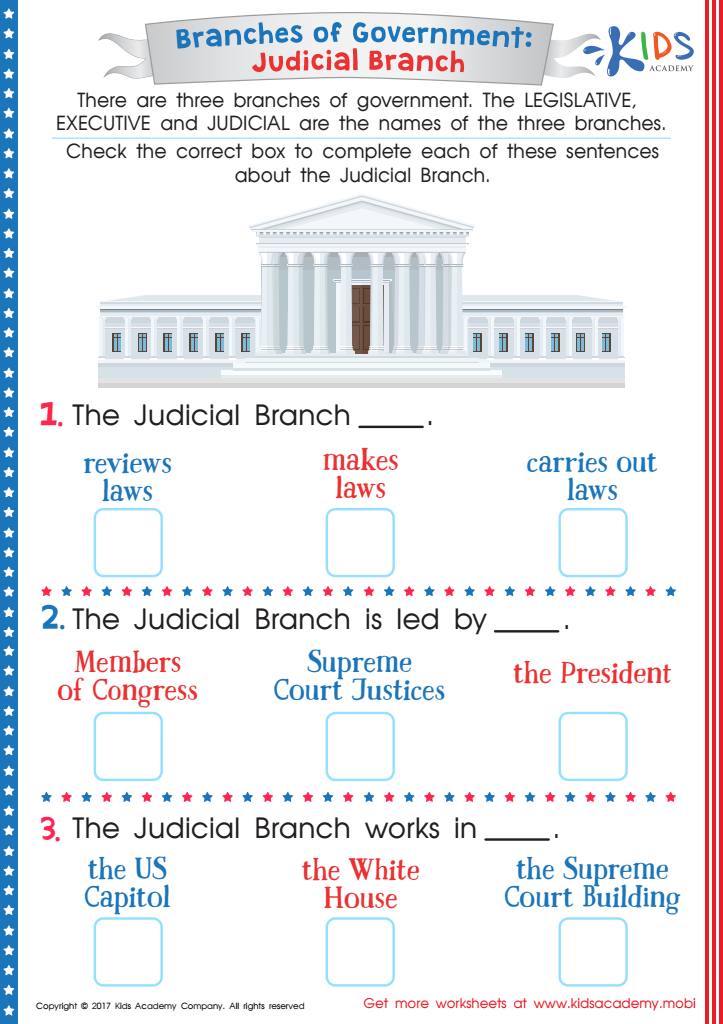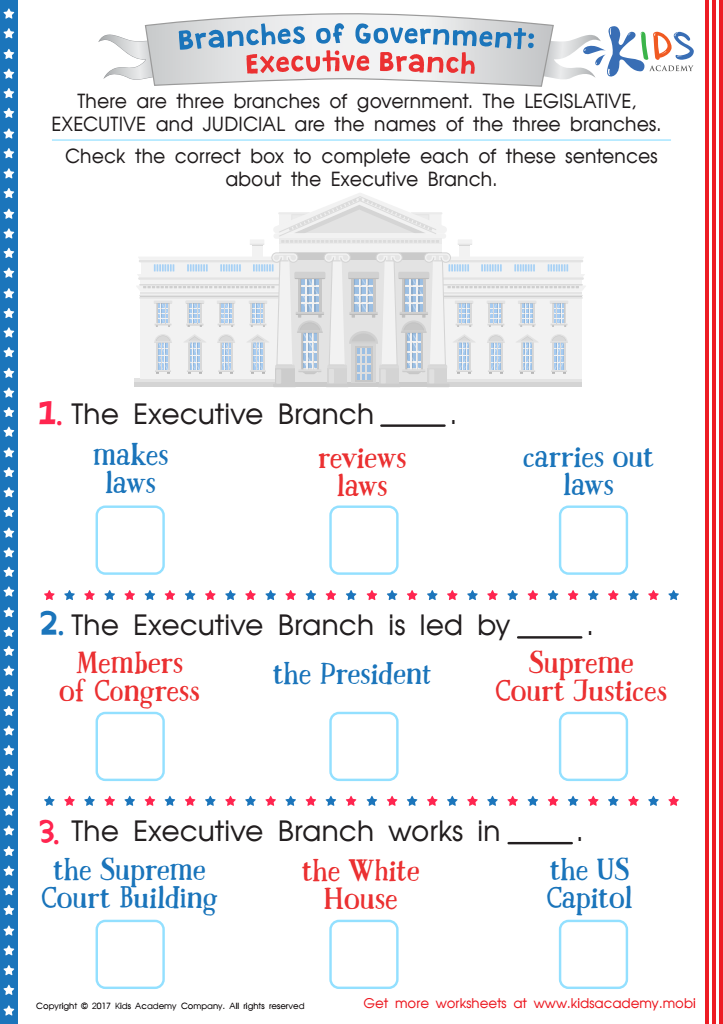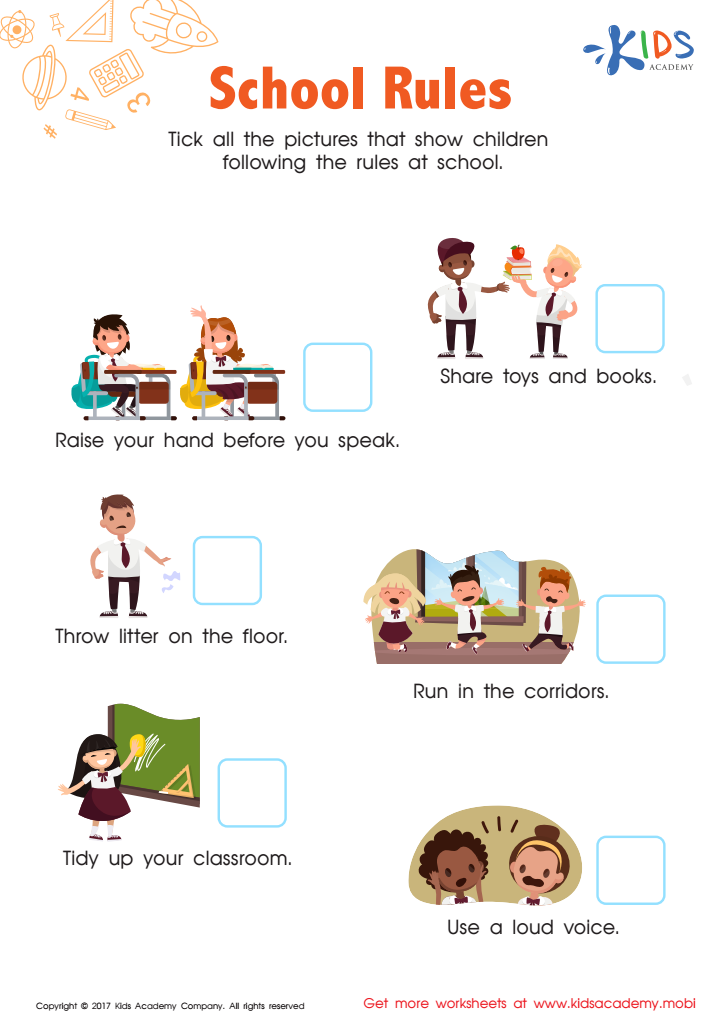Normal Governance and Civics Worksheets for Ages 4-7 - Page 2
28 filtered results
-
From - To


Ben Franklin Part 2 Worksheet


Braches of the Government: Judicial Branch Worksheet


Branches of the Government: Executive Branch Printable


School Rules Worksheet
Parents and teachers should prioritize Normal Governance and Civics education for children aged 4-7 because it lays the foundation for responsible citizenship and social understanding. At this early age, children begin to develop essential skills such as empathy, fairness, and respect for others, which are core principles of governance in society.
Incorporating civics education into early learning encourages children to understand fundamental concepts like rules, decision-making, and community roles. By presenting these topics through engaging activities, parents and teachers can foster curiosity and stimulate discussions about cooperation, sharing, and problem-solving. Understanding governance helps children recognize the importance of their voices and the idea that their actions can influence those around them.
Additionally, exposing young children to civics cultivates a sense of belonging and connectedness to their communities. It prepares them for active participation in society, helping them grow into informed and engaged citizens who appreciate diverse perspectives. By supporting early civics education, adults can create environments where children learn to values such as equity, justice, and community, ultimately leading to more thoughtful, compassionate individuals who contribute positively to society as they grow.
 Assign to My Students
Assign to My Students









